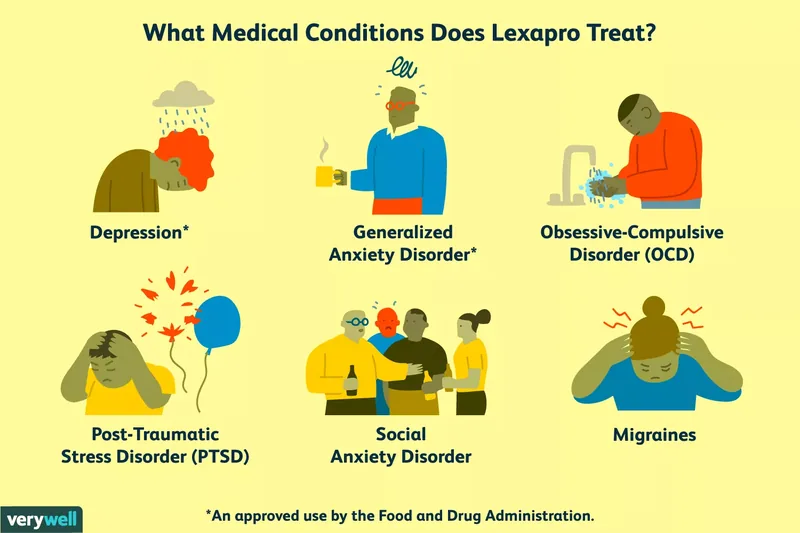Feeling overwhelmed by life's pressures, only to find yourself reacting in ways that feel... well, a bit childish? If you start emotionally regressing during stressful situations, you're not alone. This common psychological phenomenon, where individuals revert to earlier developmental behaviors, is a natural defense mechanism against anxiety. Understanding why you might act immaturely when triggered is the first step toward developing more effective, age-appropriate coping skills.
Emotional regression is a psychological defense mechanism where an individual unconsciously retreats to an earlier developmental stage to cope with stress, fear, or trauma. This can manifest as immature behavior, like temper tantrums, withdrawal, or an increased need for comfort, when faced with overwhelming circumstances (Harvard, 2024). Recognizing these patterns is crucial for fostering emotional resilience.
Understanding Emotional Regression: A Powerful Defense
Emotional regression is a fascinating and often unconscious way our minds try to protect us when faced with overwhelming stress or anxiety. It's essentially a temporary return to behaviors, thoughts, or feelings characteristic of an earlier stage of development. This isn't a conscious choice to act childish; rather, it's an automatic response when our current coping mechanisms feel insufficient. For instance, an adult facing a major professional setback might suddenly find themselves procrastinating excessively or seeking constant reassurance, mirroring the dependency of a younger person.
This retreat to a "safer" past can be seen in various forms. It could be someone who typically handles conflict well suddenly becoming passive-aggressive, or an individual who prides themselves on independence needing constant validation from others. The underlying goal of emotional regression is to reduce distress by adopting behaviors that once provided comfort or felt more manageable. When you start emotionally regressing, it's a signal that your emotional system is under significant strain, seeking familiar, albeit less mature, ways to navigate difficulty.
In the context of modern life, with its relentless demands and constant digital stimulation, instances of emotional regression might even be on the rise. The sheer volume of information and pressure to perform can push individuals past their emotional breaking point, leading to a temporary breakdown in sophisticated coping strategies. Recognizing these signs in yourself or others is the first step toward addressing the root causes and fostering healthier emotional responses. Understanding this defense mechanism helps us approach our own and others' struggles with more empathy and insight, paving the way for constructive change.
The Historical Roots: Freud's Insight on Regression
The concept of regression as a psychological defense mechanism was first introduced by Sigmund Freud in the late 19th century as part of his groundbreaking psychoanalytic theory. Freud proposed that individuals unconsciously employ various strategies to protect the ego from anxiety, fear, and trauma. His daughter, Anna Freud, later expanded upon these ideas, categorizing regression as an "immature" defense mechanism because it reflects an inability to cope with current stressors in a more constructive, age-appropriate manner.
Freud's understanding of regression was deeply intertwined with his theory of psychosexual development, which outlined several stages children progress through from infancy to adolescence, particularly focusing on the crucial period from birth to age six. These stages—oral, anal, and phallic—are universal experiences. According to Freud, a person could become "fixated" at a particular stage, meaning they remain preoccupied with its themes or behaviors even as they physically mature. For example, an oral fixation might manifest as excessive eating, smoking, or nail-biting in adulthood.
Regression, in this context, occurs when a person, under stress, reverts to behaviors associated with a previously fixated stage. If someone has a strong oral fixation, a significant breakup might cause them to start emotionally regressing by overeating or seeking oral comfort. The strength of the initial fixation dictates how easily regression might occur; a strong fixation might lead to regression even with minor stressors, while a weaker one would require a major life event. While contemporary psychology has evolved beyond strict Freudian interpretations, the core idea that past developmental experiences influence present coping remains highly relevant in understanding why we sometimes revert to earlier behaviors.
Regression in Childhood: Navigating Developmental Shifts
Childhood is a period of rapid development, marked by the constant acquisition of new skills and abilities. It's also a time when regression is a surprisingly common and often normal part of the developmental process. For young children, especially toddlers and preschoolers, slight regression can occur after mastering a new skill or adjusting to a significant life change, such as starting daycare, welcoming a new sibling, or even moving to a new home. This temporary dip in behavior is often a child's way of expressing that they feel overwhelmed by new challenges or a shift in their established comfort zone.
For example, a child who has been fully potty-trained for months might suddenly start emotionally regressing and have accidents again after the arrival of a new baby. Or, a child who has been happily feeding themselves might revert to wanting caregivers to spoon-feed them, seeking the comfort and attention they associate with infancy. These behaviors are not deliberate acts of defiance but rather a subconscious plea for reassurance and a return to a perceived state of security. It's a natural way for children to process big emotions and communicate their internal struggles.
Parents and caregivers play a crucial role in helping children navigate these periods of regression. The key is to be reassuring and supportive, acknowledging their feelings without necessarily indulging the regressive behavior. Setting gentle limits and suggesting alternative, age-appropriate coping mechanisms is vital. For instance, instead of scolding a child for thumb-sucking, a parent might offer a comforting hug and suggest talking about what's bothering them. While brief periods of regression are normal, if the behavior persists for more than a few weeks, it's advisable to consult a pediatrician to rule out any underlying developmental or emotional concerns, ensuring the child receives appropriate support.
Adult Emotional Regression: Coping with Modern Pressures
Just like children, adults can also start emotionally regressing, often as a temporary, unconscious response to traumatic, stressful, or anxiety-provoking situations. In our fast-paced 2025 world, filled with digital overload, economic uncertainties, and persistent social pressures, instances of adult regression might be more prevalent than ever. These regressive behaviors in adults are typically a retreat to a developmental stage where they felt safer, more secure, or where a caregiver might have intervened to rescue them from their insecurities.
Consider a high-achieving professional who, under immense pressure to meet a tight deadline, suddenly finds themselves snapping at colleagues or throwing a mini "temper tantrum" over a minor technical glitch – a behavior entirely out of character for their usual composure. This road rage-like reaction is a form of emotional regression, a reversion to an immature way of coping with intense frustration. Another common example might be an individual facing a significant life change, like a job loss or a major breakup, who starts stress-eating comfort foods excessively, much like a child seeking oral comfort, or withdrawing into prolonged periods of online gaming, mimicking adolescent escapism (Harvard, 2024).
Research indicates that the frequency of regression generally decreases throughout adulthood as individuals develop more mature coping strategies. However, studies have also shown a potential increase in regressive behaviors in older adulthood, perhaps due to new challenges associated with aging and maintaining adaptive coping mechanisms. While temporary regression is often harmless, a consistent reliance on immature reactions can signal deeper issues, such as poor coping skills or underlying psychological distress. Recognizing these patterns in oneself or others is crucial for fostering healthier emotional responses and seeking support when needed, especially as modern life continues to present unique stressors.
Proven Strategies to Overcome Emotional Regression
While emotional regression can be a natural, temporary coping mechanism, a consistent reliance on it can hinder personal growth and effective problem-solving. The first step to overcoming the tendency to start emotionally regressing is often self-awareness. Many individuals are unaware their behavior is regressive, even when it's obvious to external observers. Gently acknowledging that certain reactions are uncharacteristically childish or age-inappropriate can be a powerful catalyst for change. This realization empowers individuals to choose more productive and mature ways to respond to distress.
To consciously shift away from regressive patterns, it's important to develop a robust toolkit of healthy coping strategies. Mindfulness practices, such as meditation and deep breathing, can help you stay grounded in the present moment and observe your emotions without being overwhelmed by them. Engaging in regular physical activity is also highly effective, as exercise is known to reduce stress hormones and improve mood. Additionally, cultivating strong social connections and having trusted individuals to talk to can provide emotional support and prevent feelings of isolation that often trigger regression.
If you find yourself frequently acting helpless, withdrawing, or exhibiting immature behaviors in the face of everyday stress, it might be a sign that you need professional guidance. A counselor or therapist can help you identify the underlying triggers for your emotional regression and teach you advanced coping skills tailored to your specific needs. In some cases, regression can also be a symptom of more significant physical or psychological issues, such as major depressive disorder, anxiety disorders, borderline personality disorder, or even certain neurological conditions. If there's concern that regression is indicative of a larger difficulty, consulting a medical doctor or mental health professional is crucial. They can provide an accurate diagnosis and develop a comprehensive treatment plan, focusing on addressing the root cause, which will naturally lead to a reduction or complete resolution of regressive behaviors, helping you build a more resilient and mature emotional life in 2025 and beyond.
Remember, recognizing when you start emotionally regressing is a sign of self-awareness. It's an opportunity to pause, reflect, and choose a more constructive path forward. By understanding this defense mechanism and actively implementing healthier coping strategies, you can navigate life's challenges with greater maturity and emotional strength.












